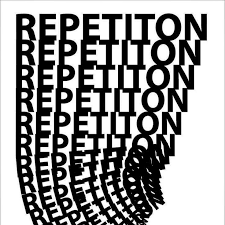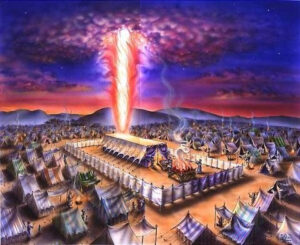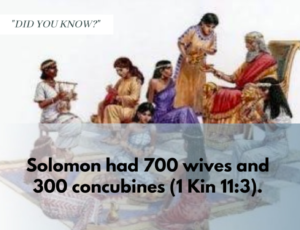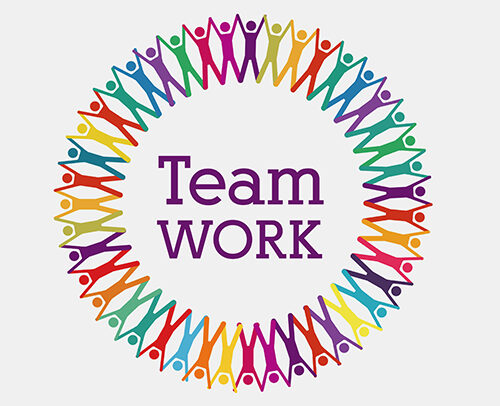Raboyseyee and Ladies,
Team Work!
Of late, the heylige Ois has been writing about repetition in the heylige Toirah and shoin here we are in Parshas Pikudei, the very last parsha in Sefer Shmois, where repetition seems to take center stage; it’s all over the parsha. But surprise surprise, it’s not what you think.

Nu, after two months of a huge and complicated construction project involving lots of hocking and klapping, all while encamped in the heart and heat of the midbar, the Yiddin completed the detailed instructions for building the Mishkan (Tabernacle) they received from the RBSO in the last number of parshas. Four and one half parshas to be exact are dedicated to the project. By contrast, all of creation is described in but a very limited number of pisukim (verses). Why so much coverage? Seemingly, the RBSO took this project very seriously.
Not once, and not even twice or three times, but one phrase -with almost the exact same wording- appears eighteen times. Each and every time Moishe saw that different parts of the project were completed -to include the vestments the koihanim were to don during their service- Moishe blurted out the very same or similar words. Let’s read the posik innvaynig. Says the heylige Toirah (Shmois 39:32 and many times thereafter) azoy:
וַתֵּ֕כֶל כׇּל־עֲבֹדַ֕ת מִשְׁכַּ֖ן אֹ֣הֶל מוֹעֵ֑ד וַֽיַּעֲשׂוּ֙ בְּנֵ֣י יִשְׂרָאֵ֔ל כְּ֠כֹ֠ל אֲשֶׁ֨ר צִוָּ֧ה יְהֹוָ֛ אֶת־מֹשֶׁ֖ה כֵּ֥ן עָשֽׂוּ׃ {פ}
Thus was completed all the work of the Tabernacle of the Tent of Meeting. The Israelites did so; just as Hashem had commanded Moishe, so they did.
The bottom line: The phrase “as G‑d commanded Moishe” is mentioned repeatedly in this week’s parsha. In fact, nowhere else in the entire heylige Toirah do we have any expression repeated so many times. Well, blow me down with a feather because it’s hard enough to explain why words are repeated for a second time. How are we to explain away eighteen readings of the same phrase? What’s pshat?
Let the questions begin: Why didn’t Moishe wait until he had seen all the parts before commenting? Why does the heylige Toirah have to tell us that the Yiddin did everything that the RBSO commanded them to do? Of course they did! Let’s get real! Imagine that you had a face-to-face meeting with the RBSO and lived to talk about it. As an aside, and aside from Moishe, history does not -to the best recollection of the heylige Ois- record another person having a face-to-face encounter and coming back to report of such an event. Maybe the Lubavitcher rebbe one day, ver veyst? Ober, imagine for a moment that the RBSO gave you very specific instructions on a very specific project. Would you do it? Avada you would! And wouldn’t you do it mamish just as instructed? And because He is the RBSO and you but a mere mortal fighting for your life, avada you would! Would you even consider veering off track and adding your own touches? Not! It’s the RBSO giving you very clear instructions. Yet, the phrase in our parsha repeats itself, stressing the fact that they did all that was demanded of them as if they were deserving of a medal. Why is this worthy of mention? Should we have expected anything less? Why was Moishe so excited that the Yiddin did just as they had been commanded to do? And why does the Toirah see the need to emphasize this? Following orders -and especially so on the heels of the eygel caper -just as they were given by the RBSO- especially for something as lofty as building the Mishkan, seems elementary. Why over and over? And why is the Ois repeating the question over and over? If that weren’t enough, the heylige Toirah introduces yet a different version of the same. Let’s read that posik (39:42) as well:
כְּכֹ֛ל אֲשֶׁר־צִוָּ֥ה יְהֹוָ֖ה אֶת־מֹשֶׁ֑ה כֵּ֤ן עָשׂוּ֙ בְּנֵ֣י יִשְׂרָאֵ֔ל אֵ֖ת כׇּל־הָעֲבֹדָֽה׃
Just as Hashem had commanded Moishe, so the Israelites had done all the work.
Again, the heylige Toirah stresses that the Yiddin followed instructions and did all as commanded to Moishe. Are these additional pisukim not epes a shtikel redundant and repetitive?
Let’s review: In our parsha, Betzalel and his team constructed the Mishkan. Every component is mentioned, and each time the heylige Toirah relates that the craftsmen made it “as Hashem commanded Moishe.” This phrase appears eighteen times! What’s pshat here? And if that weren’t enough, let’s try one more version. Let’s read this posik (39: 43):
| מג וַיַּרְא מֹשֶׁה אֶת-כָּל-הַמְּלָאכָה, וְהִנֵּה עָשׂוּ אֹתָהּ–כַּאֲשֶׁר צִוָּה ה, כֵּן עָשׂוּ; וַיְבָרֶךְ אֹתָם, מֹשֶׁה. | 43 And Moishe saw all the work, and, behold, they had done it; as the LORD had commanded, even so had they done it. And Moishe blessed them. |
Wait, there are more questions. At the end of posik 43 -above- Moishe blesses the team davka because they had done their jobs “as they had been commanded.” Ershtens (firstly), just whom did Moishe bless? The builders? Betzalel and his team of artisans? Or, all the Yiddin? Spoiler alert: there are differing opinions! Next: Why should a person who does what he is employed to do get praised and blessed? A simple one-time Yasha koiach (thank you) would be in order for sure. And if he did bless them all, we ask azoy: why would he or did he bless all the Yiddin when only a handful did the work? The bottom line: the heylige Ois is zicher not the first to ask these questions: Many were left bewildered by the repetition and the blessing and let us read what a few had to says.
Says Rav Yechezkel Levenstein azoy: people have a powerful drive for self-expression. Their ideas, beliefs, and individuality accompany them with every action they do. People like to do things “their way,” and often go out of their way to leave their own mark. We can all chap this concept. This applies even when it comes to mitzvis; people enjoy putting personal touches on the way they dress for and celebrate the heylige shabbis, yom tov. As well, when they perform charity or any chesed for others. There is room for individuality when serving the RBSO. Personal touches and dedication are -so we hope- appreciated by the RBSO, ober, there is seemingly no place for them when faced with clear instructions. His mitzvis are supposed to reflect Him, not ourselves. The greatness of the artisans who constructed the Mishkan was that they followed the script. The craftsmen Moishe praised subjugated themselves entirely to accomplishing nothing other than the RBSO’s instructions. Any thoughts of embellishments were set aside. Their sole motivation was to do exactly “as Hashem commanded Moishe.” They took themselves out of the equation and fulfilled the RBSO’s will as it was. And for this they deserved praise. Gishmak.

On the other hand, isn’t it the case that when it comes to holiness and spirituality, we feel an even greater need to express our individuality? Our inner spirit that tells us how to act. We want to feel connected. It’s taka azoy, ober when it came to the Mishkan project, we see that the RBSO wanted the artisans involved to remove themselves from the picture and do exactly as He commanded; to make it as He willed it; His will, not our will. And taka so we find quoted in Pirkei Ovos (Ethics of the Fathers 2:4):
הוּא הָיָה אוֹמֵר, עֲשֵׂה רְצוֹנוֹ כִרְצוֹנְךָ,
“…do His will as though it were your will, so that He will do your will as though it were His.” So gishmak!
Let’s also recall what happens when people forget the RBSO’s will and wander off on their own. One’s power of reasoning can lead to conclusions that are irrelevant, or worse, incorrect. Let us recall the heylige Gemora Sanhedrin (21b) where we read about Shlomo Hamelech (King Solomon) who -on his own- took more wives and horses than he was allowed by Toirah law because he felt that the heylige Toirah’s prohibitions weren’t applicable to him. The heylige Toirah states mamish bifeirush (plainly in the text) that a king should not take too many wives. Why not? Because they will distract him from the RBSO and cause him to go after his base desires. No kidding! (Grada the same is true when married to but one wife; nu, what can one do?) The heylige Toirah also tells us that a king should not acquire too many horses because this may cause him to take up residence in Egypt, avada forbidden for Jews to do since redemption from slavery. Since the Toirah revealed a specific reason for each of these laws, the good king asserted that only when the reasons were applicable did the prohibitions exist. He rationalized that one who would not stumble in these ways was allowed to engage in these practices. Did he stumble? Yes! Seemingly from room to room while providing services, if you chap. The heylige Gemora tells us that Shlomo did indeed succumb to what the Toirah had warned him about. Oy vey! Let us not forget to shout out Dovid Hamelech (King David) for his issues and the affair he had with Uria’s wife Batsheva. Did the heylige Toirah not forbid -several times- his illicit relationship? Indeed so. The bottom line: it’s good to be the king! The RBSO gave him a pass. Another bottom line: Arguments advanced by the wisest of men were flawed because both kings were rooted in an intellectual approach to the commands of the heylige Toirah. When it came to the Mishkan, the brilliant artisans overcame their own individual challenges to leave their own prints on the project. And according to this pshat, Moishe only blessed the builder. Mamish givaldig pshat.

Ober, says the Sforno, also so gishmak azoy: Because the Yiddin wholeheartedly donated the materials to build the mishkan, they shared in its actual construction and they too were included in Moishe’s blessing. Even those unable physically to do the work of creating the mishkan, did provide support for its construction thereby allowing each individual to share in its completion; team work! Did we not read -last week- that so much was donated by so many that Moishe had to announce a halt to the giving? We did! Every morning the piles of material grew at an astounding rate (36:3-4) until the artisans responsible for the execution of the project could not keep up with the influx of material.
“And they said to Moishe, saying: the people are bringing too much, there is more material than is necessary for the work Hashem has commanded (us) to do.”
Says the Ohr HaChaim that in giving to the Mishkan, the Yiddin people became partners in the project. They were all blessed and all viewed as equally crucial and important in the fulfillment of this mission. The bottom line: donations talk loudly! Donors deserve a shoutout and Moishe gave one. Even while recognizing the leadership of the mishkan’s chief architect, Moishe in posik 42 emphatically attributed the project to the entire community. “The Israelites did so,” it says, “just as G-d had commanded Moishe, so they did.”
Shoin, given that we are discussing the accolades the Yiddin received for having built the Mishkan exactly according to the specifications, we must also ask again: who really built this tabernacle? Did all of the Jewish people lend a hand in the building? Is this possible? The idea that 600,000 men between the ages of twenty and sixty (army age) all got together and participated in one building project makes is tough to imagine. Let’s get real: It is hard enough to get two or three Yiddin together on any project; can you imagine trying to organize six hundred thousand? And that they all acted in unison? Na! Moreover, the pisukim are very clear about who actually built the Mishkan: the Chachmei Lave, the artisans under Betzalel and Oholiov, built it. (36:2-4; 8). Oib azoy, why would the entire nation get thanked for getting the job done down to the last detail?
As to the 18 times the phrase is repeated, this phenomenon is noted by the heylige Gemora (Yirushalmi B’rochis 4:3 and Ta’anis 2:2) which counts 18 references to the architects’ compliance with the RBSO’s command to Moishe and explains that it is a hidden reference to Judaism’s most important tifila (prayer): the Amidah (Standing Prayer or Shemoneh Esrei-18). Avada you all know that it is called Amidah because one must recite this prayer standing. It is called Shemoneh Esrei, which means 18, on account of its original 18 benedictions. (Although a 19th blessing was added later, 18 remained its official title.) Exactly how the 18-brocho Amidah is related to the 18 times the phrase in our parsha is referenced, ver veyst? The answer remains -as mentioned just above- a hidden reference. Shoin! Says the Baal Haturim on posik 40:2 that the words “as Hashem commanded Moishe” appear 18 times in Parshas Pekudei, and this is why the Sages enacted the 18 blessings of Shmoneh Esrei. Is that how it went down? Ver veyst? Additionally, since we have the phrase – “as Hashem had commanded, so had they done” –a slightly different version of the 18 oft-found phrase, our sages decided to add one more brocho to the 18 and today for those who don’t count, the 18 brocho Amida is really 19. The last one added is the blessing against the Heretics. Hum….is that pshat?
What brocho did Moishe give either the artisans or to all the Yiddin? Well, the heylige Toirah is silent on the matter but not to worry because Rashi- who somehow knew everything, or figured it out- says azoy: Quoting the Sifra, Rashi (Shmois, 39:43) tells us what his blessing was: “May it be Your will that You rest the shechina (Your Essence) in the work of their hand. And may the favor of Hashem, our G-d, be upon us.” Ober, asks the Ksav Soifer azoy: why was Moishe’s brocho necessary? Didn’t the RBSO specifically tell the people to build Him a Mishkan and that He would dwell in it? Indeed He did just that (Shmois 25:8) and let us read the posik innvaynig: He told them “make for Me a Mikdash and I will live in it. Why did Moishe decide to bless the people with something that the RBSO had already promised them? Ober, the Ksav Soifer also provides this answer to his own question. He explains that Moishe was not blessing the people that the RBSO should rest His presence in the Mishkan. Instead, he was blessing the people that Hashem should rest His presence in the “work of their hand.” What that means, ver veyst?

The bottom line: The promise that the RBSO made back in Parshas Terumah – “and I will live in it” is literally translated as “and I will live in you.” Gishmak? Not so? Let’s go Veyter. Another bottom line: they built it and indeed the heylige Toirah records that the RBSO’s Essence rested upon the or in the Mishkan. Let’s review the very end of the parsha where the heylige Toirah tells us (40:34-38) that a cloud covered the tent of meeting, and “the glory of G-d filled the tent.” Promise made and kept!
And with that we have complete our postings for Sefer Shmois, the great and exciting Book of Exodus. Chazak, Chazak, Vi’nischazake!
A gittin Shabbis!
The Heylige Oisvorfer Ruv
Yitz Grossman
